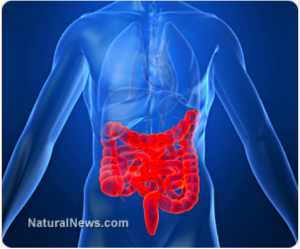Latest categories
- Acid Reflux
- Adrenal Fatigue
- All videos
- Alzheimer's
- Anti-inflammatories
- Antibiotics
- Arthritis
- Aspirin
- Autism
- Barefoot Training
- Beta-Glucan
- Bioengineering
- Blood Tests
- Breath
- Cancer
- Cell Phones
- Cerebrospinal Fluid
- Cholesterol
- Cod Liver Oil
- Coffee Enema
- Cold and Flu Treatments
- Collagen
- Colon Health
- Colonoscopy
- Colostrum
- Dentistry
- Diabetes
- DMSO
- Earthing
- Fascia
- Fever
- Flu Shots
- Fluoride
- Gout
- Green Tea
- Healthy Baby Food
- Healthy Births
- Heart
- High Fructose Corn Syrup
- Ice
- Immune System
- Inflammation
- Infrared Sauna Therapy
- Iodine
- K-Laser
- L-Glutamine
- Leaky Gut Syndrome
- Liver Health
- Magnesium
- Mammograms
- Medical Research
- Mental Health
- NAC
- Niacin
- NSAIDS
- Nutrition
- Oregano Oil
- Osteoporosis
- Our Blog
- Pregnancy
- Probiotics
- Root Canals
- Salt
- Schizandra
- Skin Health
- Stand up Desks
- Sulfur
- Thyroid
- Ultrasound
- Vaccines
- Vitamin C
- Weston A. Price
- Zika Virus
Probiotic
Probiotic microflora found effective in weight loss efforts
Much has been made of the amazing power of probiotics in not only boosting the digestive and immune systems but in whole-body health. Now it appears that those symbiotic, friendly little bacteria have the ability to help us lose fat, particularly from the abdominal region. They do this by regulating the hormones in our bodies that send signals to our brain relating to being hungry or full, by destroying fat calorie absorption in the intestines, and by boosting our energy levels, giving us the motivation to power through a workout or just everyday activities that keep our metabolisms churning and burning fat.

Regulating hormones: How probiotic microflora normalize appetite
The hormones that control these “hungry” or “full” signals are called leptin and ghrelin. When the gut has the correct balance of microflora, these hormones function normally. But when our gut is devoid of “friendly” bacteria, specifically H. Pylori, the hormones don’t function correctly and we can’t regulate our appetites, and we are apt to overeat. Thus, probiotics can help us regulate our appetites, preventing obesity. Unfortunately, there are many things in our modern world that destroy our populations of microflora, such as antibiotics, pesticides, chlorine exposure, coffee, carbonated beverages, and food additives and preservatives, for example. Thus it is important to regularly supplement our diets with probiotic-rich foods such as yogurt, kiefer and sauerkraut (or probiotic flora-food supplements).
How the presence of microflora curbs abdominal weight gain
When our systems lack a healthy microfloral population, we digest all the food we eat and absorb all the calories. Certain microfloral bacteria (such as lactobacillus fermentum and lactobacillus amylovorus) interfere with the absorption of calories when present in the gut. This equates to some of the ingested calories being excreted from our systems, and less calories being converted into abdominal fat.
The way microflora accomplish this is by preventing the intestines from absorbing fat calories. During the digestive process, the liver comes into play by secreting soapy chemicals called bile salts which mix with fat to help digest it. The microflora bacteria eat up and destroy the bile salt, thereby interfering with absorption of fat.
Probiotics and their role in energy production: How our energy levels affect weight loss or gain
The presence of probiotics in our systems has a critical role to play in digestion and energy production. When our systems are devoid of “friendly” bacteria, our digestion is impaired significantly and our bodies must use extra energy to digest food, resulting in decreased energy levels. Decreased energy levels is connected to lower levels of motivation to exercise or engage in activities that would burn fat and help us lose weight. Thus it is critical to tune up our systems by regularly supplementing with a good source of probiotic microflora to maintain our bodies in tip-top fat-burning shape.
